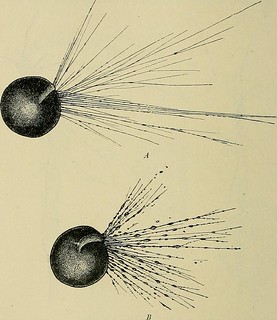- External URL
- Creation
-
Creators (Definite): Judy Johns Schloegel; Henning SchmidgenDate: 2002
- Current Holder(s)
-
- No links match your filters. Clear Filters
-
Cited by
 Henri Bergson's Physiological Psychology: Vitalism and Organicism at the Start of the Twentieth Century
Henri Bergson's Physiological Psychology: Vitalism and Organicism at the Start of the Twentieth Century
Description:'Recent historiography on relations between psychology and life science in Europe at the turn of the twentieth century suggests that the hope that Bergson held out for the latter was by no means misplaced. For example, Judy Schloegel and Henning Schmidgen point to the prominence during the final decades of the nineteenth century of a physiological tradition in which the origins of psychological existence were associated with that of the most simple known forms of organic matter; in the work of Ernst Haeckel, Max Verworn, and Alfred Binet, psychological properties such as sensation, volition and intention were discovered in apparently primordial forms of life, most notably the cell.'
-
Cited by
 T. Quick, 'Disciplining Physiological Psychology: Cinematographs as Epistemic Devices, 1897-1922', Science in Context 30 (4), pp. 423-474.
T. Quick, 'Disciplining Physiological Psychology: Cinematographs as Epistemic Devices, 1897-1922', Science in Context 30 (4), pp. 423-474.
Description:'Recent historiography on relations between psychology and life science in Europe at the turn of the twentieth century suggests that the hope that Bergson held out for the latter [as a complement to his own philosophical stance] was by no means misplaced. For example, Judy Schloegel and Henning Schmidgen point to the prominence during the final decades of the nineteenth century of a physiological tradition in which the origins of psychological existence were associated with that of the most simple known forms of organic matter; in the work of Ernst Haeckel, Max Verworn, and Alfred Binet, psychological properties such as sensation, volition and intention were discovered in apparently primordial forms of life, most notably the cell (Schloegel and Schmidgen 2002, esp. 622-633).'







